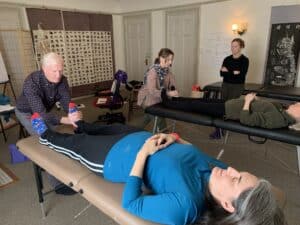Atrial fibrillation (AF) is a widespread and serious heart condition that causes the heart to beat in an irregular, sometimes rapid rhythm. While some people with AF do not experience any symptoms and may be unaware that they have it, other people experience uncomfortable and even scary symptoms–episodes of arrhythmia that feel like your heart is pounding or fluttering in your chest, or even like your heart might explode.
While AF is a common condition, its prevalence continues to grow. More than 33 million people worldwide meet the diagnostic criteria, and 200,000 new cases per year are diagnosed in the U.S. alone. More women are likely to have AF than men are, and symptoms typically appear between the ages of 45 and 60. Atrial fibrillation has been found to develop with age, especially in individuals who are already battling hypertension, diabetes, obesity, or sleep-disordered breathing.
AF is chronic. Once you receive diagnosis, the condition is not considered to be reversible and must be managed with medications, lifestyle changes, and treatment. AF is also a risk factor for other cardiac conditions, such as coronary heart disease, stroke, dementia, or heart attack. Although AF is a potentially life-threatening condition, most people with AF can go on leading active lives, working normally and exercising heartily, but they need to be monitored regularly by a doctor.
There is no doubt that atrial fibrillation is a major public health issue, and it cannot be managed by Western medicine alone. Fortunately, research on natural medicine and acupuncture shows a lot of promise in prevention and treatment of AF. Even mainstream medicine recognizes that the focus needs to shift from medical procedures to reducing risk factors overall. An article published by the Heart Rhythm Society acknowledges that “emerging evidence related to diet, caffeine, yoga, and acupuncture represent potentially important steps forward in the incorporation of patient-driven prevention research.”
Western Medical Diagnosis and Treatments
Atrial fibrillation is diagnosed by a physician, using lab or imaging testing, along with a physical exam. Doctors define three types of AF: Paroxysmal AF (lasts less than 24 hours), persistent AF (continues for more than a week), and permanent AF (normal heart rhythm cannot be restored by treatment). The treatment goals for AF are to reset the heart rhythm and control the heart rate, prevent blood clots, and decrease the risk of stroke. Some of the standard treatments include: taking blood-thinning medication, regulating blood pressure, reducing inflammation, undergoing electrical cardioversion to reset the heart rhythm, and, if the above methods do not work, surgery (ablation).
Unfortunately, many of the medications prescribed to regulate the heart rhythm carry unpleasant side effects, including nausea, dizziness, and fatigue. Blood-thinners (anticoagulants) are prescribed because of an AF patient’s increased risk of blood clots, which can lead to stroke. These are powerful medications that can lead to bleeding, so they need to be carefully prescribed and monitored.
When medications and cardioversion are unable to control atrial fibrillation, ablation surgery may be recommended. Ablation is a minimally invasive procedure that uses a catheter to destroy the area of heart tissue that is causing the abnormal rhythm. However, ablation is not always successful. The success rate is greatest (80%) within one year of an AF diagnosis and declines to a 50% success rate after six years.
Clearly, all of the mainstream treatments for atrial fibrillation have significant risks and limited success rates. Lifestyle changes and alternative treatments, especially acupuncture, have an important role to play in preventing AF and keeping it in check.
Acupuncture Benefits Atrial Fibrillation
Several recent small group studies show promising results for acupuncture in treating both persistent and paroxysmal atrial fibrillation, in conjunction with medication and standard western treatment. Acupuncture has been shown to have an anti-arrhythmic effect. It has also been shown to prevent arrhythmic recurrences after cardioversion in patients with persistent AF. A 2012 study of AF patients recommends “acupuncture may be an effective non-invasive and safe anti-arrhythmic tool in the management of these [AF] patients.”
Acupuncture not only may restore heart rhythm, it’s possible that it may help repair the heart. A laboratory study, using rats, showed that acupuncture both restored heart rhythm and also helped remodel and repair damaged cardiac tissue.
Diet, Heart Disease, and Atrial Fibrillation
One of the leading contributors to developing heart disease is inflammation, so it is critical to eat an anti-inflammatory diet of whole foods. Avoid any processed foods, which tend to trigger or worsen inflammation. Obesity also raises the risk of many chronic health problems, including heart issues. Eating a diet of whole foods, even with no caloric restrictions, can help you lose weight and maintain a more healthy weight.
Here are a few basic guidelines:
- Choose healthy fats (nuts, seeds, fish) and oils (olive, coconut, avocado) and avoid refined vegetable oils (corn, safflower, soybean) and trans-fats (margarine)
- Eat at least six servings per day of vegetables rich in anti-oxidants (leafy greens, broccoli, beets, carrots, cauliflower)
- Eat fruit every day, especially berries, which are high in anti-oxidants
- Eat whole grains in moderation and avoid refined carbohydrates (e.g.,white flour)
- Avoid foods containing added sugars, which includes many processed and prepared foods
- Choose high-quality animal protein sources (grass-fed beef, wild-caught fish, organic or pasture-raised poultry and eggs) and avoid factory-farmed meat
Additionally, caffeine and alcohol can aggravate atrial fibrillation. Binge drinking, in particular, which is defined as consuming 5 drinks in two hours for men or 4 drinks in two hours for women, increases the risk of AF and other cardiac problems.
Lifestyle and Stress
Studies show that psychological distress, including anxiety and depression, worsens the symptoms of atrial fibrillation, which can lead to serious complications. Intense stress, anger, lack of sleep, and feeling overworked can also cause strain on the heart by raising cortisol levels. When possible, make space in your busy life for quality sleep, relaxation activities, moments of calm, and mindful practices, which are all beneficial to the heart. Moderate exercise is also a great way to reduce stress levels and to improve heart health. Most people with atrial fibrillation can still exercise regularly, but you should check with your doctor about any restrictions or guidelines on exercises that are right for you. Walking is always a natural way to get in exercise and keep your weight in check.
A Natural Treatment Plan
Five Element acupuncture is a holistic practice that can help you keep your heart beating happily and healthily. In addition to seeking acupuncture treatment, fill your body with whole foods that will nurture and sustain you and find moments of mindful meditation throughout each day to center you. Acupuncture can help you manage your anxiety and stress, energize you, boost your immune system, reduce any pain or chronic inflammation, and improve your digestion.
Make An Appointment Today
Inner Works Acupuncture provides comprehensive wellness treatments with no adverse side effects. To learn more about how acupuncture can help you with heart conditions or other ailments, please give our Portland clinic a call at (503) 227-2127 to schedule an appointment.



